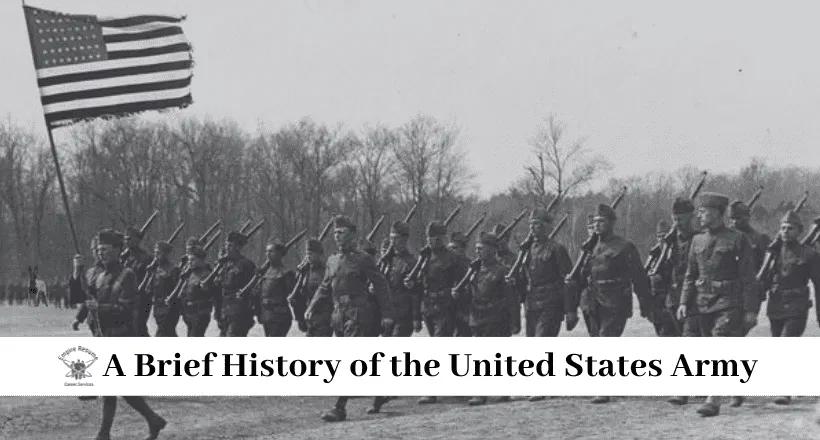
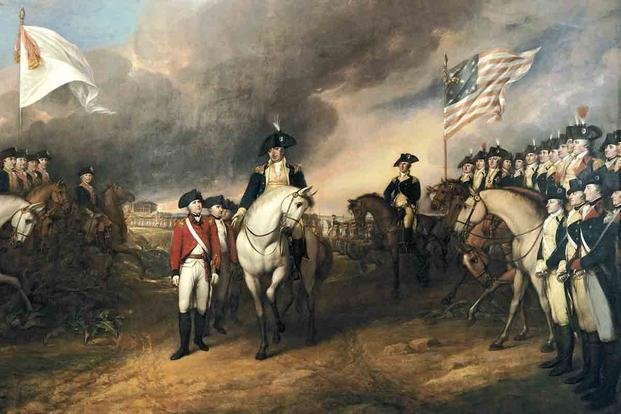
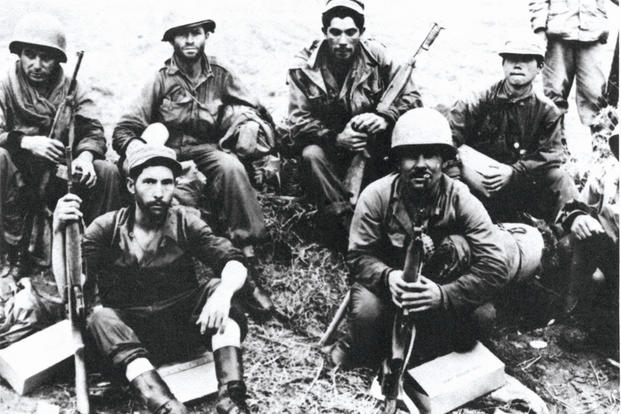
The Continental Army was the army formed by the Thirteen Colonies to fight against the British during the American Revolutionary War. Here are the key details about its origins and history:The Continental Army was established on June 14, 1775 by the Second Continental Congress, which also appointed George Washington as the army’s commander-in-chief. It was formed from the militia forces of the Thirteen Colonies that had already engaged British troops in the Battles of Lexington and Concord in April 1775.
Formation and Early Years
- The Continental Congress authorized the creation of 10 rifle companies to join the militia forces besieging Boston, marking the official establishment of the Continental Army.
- George Washington took command of the Continental Army in Cambridge, Massachusetts in July 1775.
- The army suffered from a lack of training, supplies, and funding throughout the war.
- Despite these challenges, it achieved key victories at Trenton and Princeton in 1776-1777 under Washington’s leadership.
Later Years and Disbandment
- French assistance, including troops and supplies, helped bolster the Continental Army’s efforts.
- The army’s perseverance, along with the French support, ultimately led to the British surrender at Yorktown in 1781, securing American independence.
- After the Revolutionary War ended, the Continental Army was quickly disbanded in 1783 due to the new nation’s distrust of standing armies.
- However, the need for a permanent military force led to the establishment of the United States Army in 1784, which considered itself a continuation of the Continental Army.
The Continental Army played a crucial role in the American Revolution, overcoming significant challenges to ultimately defeat the British forces and secure independence for the Thirteen Colonies
The role of the Continental Army in the American Revolutionary War
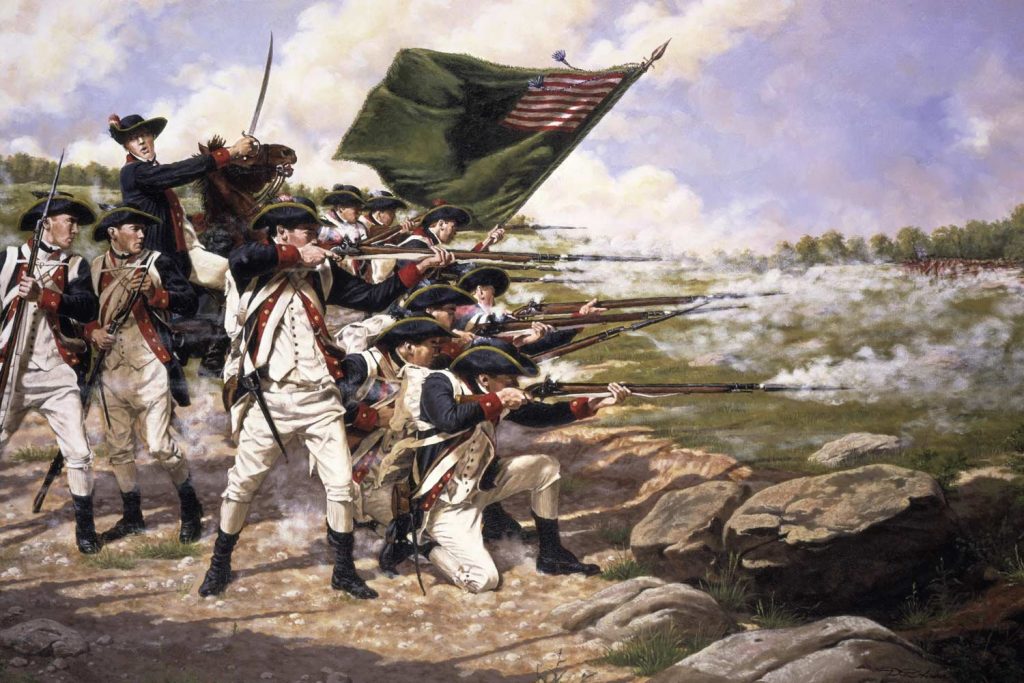
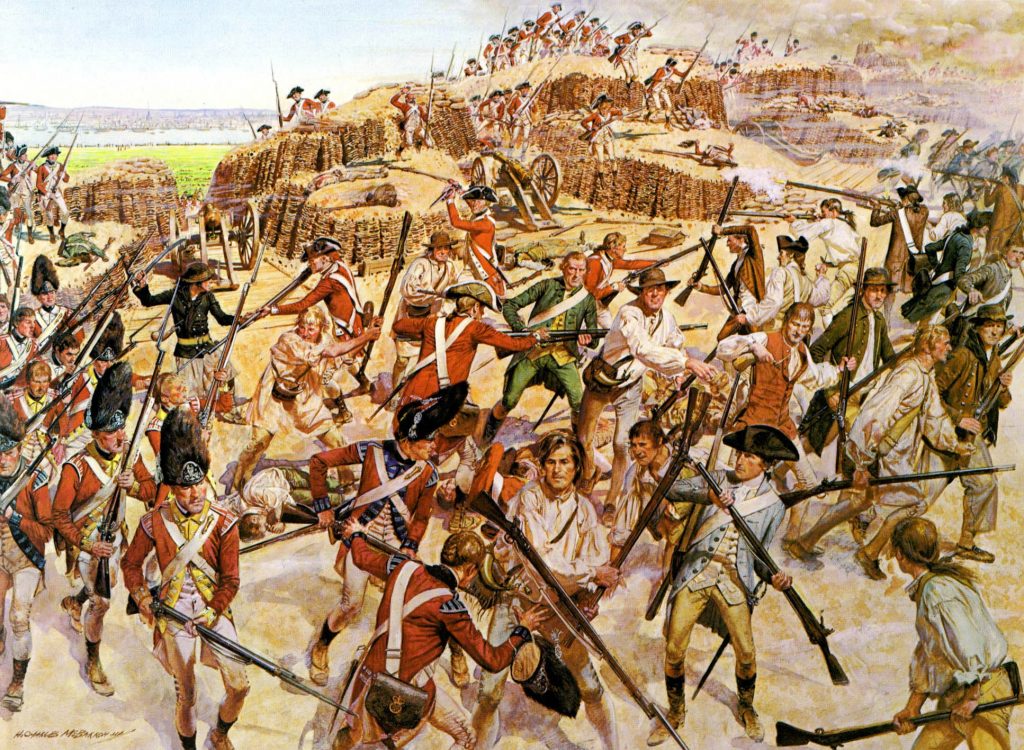
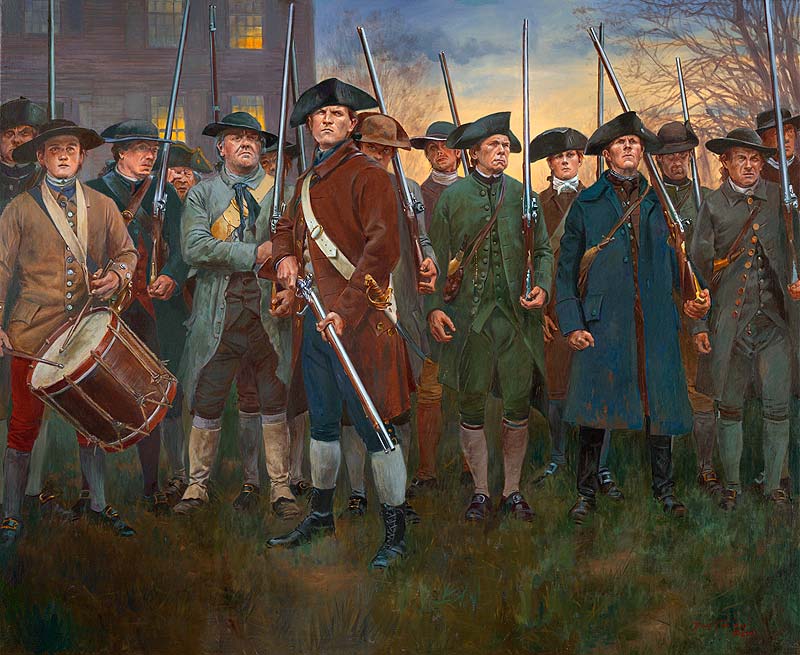
The Continental Army played a pivotal role in the American Revolutionary War, serving as the primary military force that fought for American independence against the British. Here are the key points about its role:
- It was formed on June 14, 1775 by the Second Continental Congress after the outbreak of hostilities at Lexington and Concord. George Washington was appointed as the Commander-in-Chief.
- The Continental Army absorbed the militia forces that were already besieging the British in Boston, forming the basis of the new army
- Despite being ill-trained, ill-equipped, and underfunded for much of the war, the Continental Army achieved several crucial victories:
- The army persevered through immense challenges like lack of supplies, funding, training, and low enlistment numbers. Valley Forge (1777-1778) was a harsh winter that tested the army’s resilience.
- While outnumbered and outmatched by the British forces, the Continental Army’s guerrilla tactics, home field advantage, and motivation for independence helped offset its disadvantages.
- Although it lost more battles than it won, the Continental Army’s key victories and perseverance, combined with French support, ultimately secured American independence from Britain after 8 years of war.
The Continental Army, through its sacrifices, determination, and strategic victories under Washington’s leadership, played an indispensable role in achieving the American colonies’ goal of independence from British rule.
How did George Washington’s leadership impact the Continental Army’s success
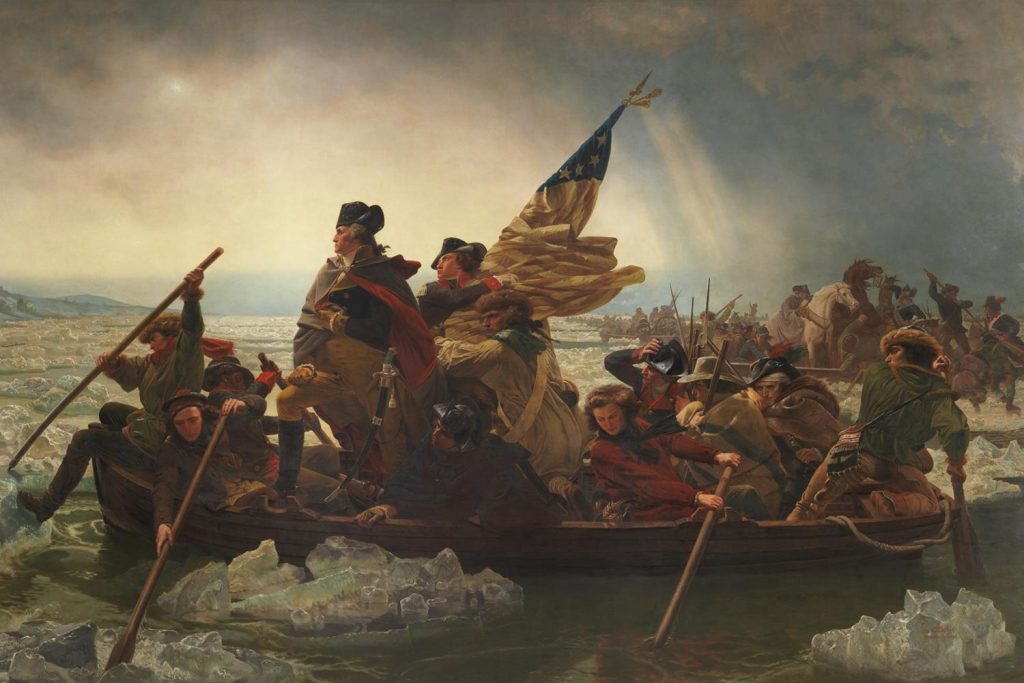
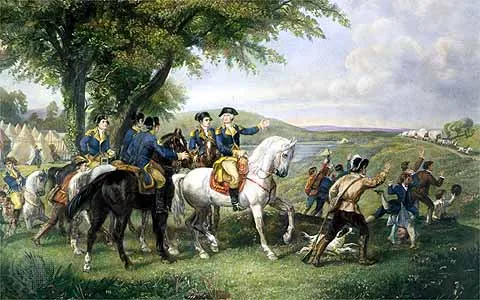
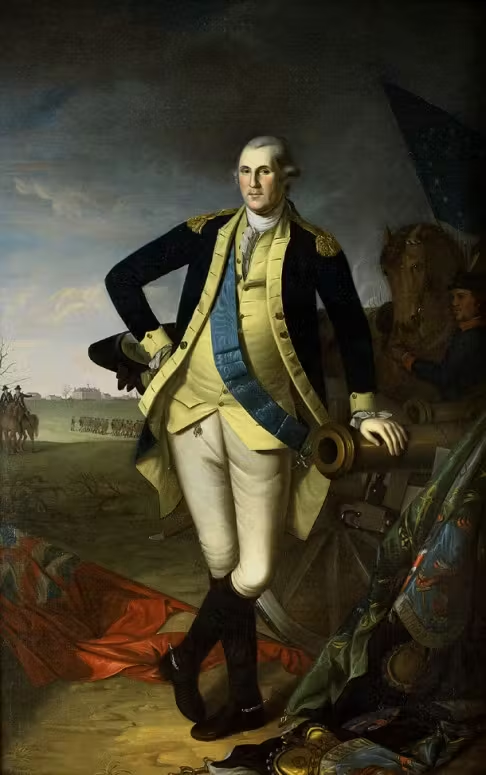
George Washington’s leadership played a pivotal role in the Continental Army’s ultimate success in achieving American independence from Britain during the Revolutionary War. Here are some key ways his leadership impacted the army’s performance:
Unifying and Organizing the Army
- When Washington took command in 1775, the Continental Army was a disorganized collection of militia forces from different colonies. He molded them into a cohesive and disciplined fighting force through training, enforcing discipline, and establishing unified procedures and hierarchies.
- He organized the army into divisions, brigades, and regiments, establishing a proper command structure. This allowed for better coordination and control during campaigns and battles.
Perseverance and Morale Boosting
- Despite facing better-trained and equipped British forces, Washington’s perseverance and ability to maintain morale were crucial. Key victories at Trenton and Princeton in 1776-77 boosted spirits during the army’s darkest days.
- He led by example, sharing the hardships of Valley Forge and other encampments with his troops, fostering their respect and loyalty.
Strategic Leadership
- While not a tactical genius, Washington excelled at the broader strategic leadership required to ultimately prevail. He adopted a Fabian strategy of avoiding full-scale battles against the British main force when outmatched.
- He recognized that he did not need a decisive battlefield victory, but simply had to maintain the army in the field and avoid total defeat. This strategic patience paid off at Yorktown in 1781.
- Washington embraced strategic risks when opportunities arose, such as the daring crossing of the Delaware before Trenton.
Overcoming Challenges
- He overcame constant issues of supply shortages, lack of funding from Congress, low enlistments, and threats of mutiny through resourcefulness and leadership.
- Washington deftly handled rivalries and insubordination among officers like Charles Lee and Horatio Gates, maintaining authority and unity of command.
By forging the Continental Army into a professional fighting force, keeping it intact through immense hardship, and providing strategic vision and leadership, George Washington’s indispensable role as commander enabled the army’s landmark achievements and ultimate victory.
What were some of Washington’s most significant strategic decisions during the war
George Washington made several crucial strategic decisions during the Revolutionary War that ultimately led to American victory. Some of his most significant strategic decisions include:
- Adopting the Fabian strategy: After suffering major defeats in the New York campaign of 1776, Washington realized he could not defeat the superior British forces in a head-on confrontation. He shifted to a Fabian strategy of avoiding full-scale battles, engaging in guerrilla tactics, and prolonging the war to exhaust British resources and morale. This strategic patience paid off at Yorktown in 1781.
- The daring attack at Trenton: In late 1776, with the Continental Army on the verge of disintegration, Washington took the bold risk of crossing the Delaware River on Christmas night to launch a surprise attack on the Hessian forces at Trenton. This audacious move revived American morale and showed Washington’s willingness to embrace calculated risks when opportunities arose.
- Persevering through Valley Forge: Despite immense hardships, lack of supplies, and the threat of mutiny during the brutal winter of 1777-1778 at Valley Forge, Washington held the Continental Army together through sheer force of will and leadership. This preserved the army as an effective fighting force for future campaigns.
- Embracing the French alliance: Washington recognized the strategic necessity of securing French military and naval support to counter British superiority. He worked closely with French commanders like Rochambeau to coordinate the allied campaign that culminated in the decisive victory at Yorktown in 1781.
- Shifting focus to the South: Originally fixated on recapturing New York City, Washington eventually agreed to Rochambeau’s proposal to instead focus the allied efforts on Virginia, where the French naval forces could trap Cornwallis at Yorktown. This flexibility allowed Washington to seize the opportunity that led to the war’s turning point.
Through his strategic vision, adaptability, and perseverance in the face of adversity, George Washington’s leadership and key decisions were instrumental in the Continental Army’s ultimate triumph against the British forces
How did Washington’s decision to cross the Delaware River impact the war
George Washington’s daring decision to cross the Delaware River on Christmas night 1776 and launch a surprise attack on the Hessian forces at Trenton was a pivotal moment that reinvigorated the American cause during the Revolutionary War. Here’s how this bold move impacted the conflict:
Boosted Morale and Renewed Confidence
After a series of demoralizing defeats in New York and being driven out of the New Jersey countryside, Washington’s surprise victory at the Battle of Trenton provided a much-needed boost to American morale. It showed that the Continental Army could defeat the formidable British forces and renewed confidence in Washington’s leadership.
Kept the Revolution Alive
By late 1776, the American Revolution was on the verge of collapse due to the string of losses and rapidly shrinking Continental Army. Washington’s crossing and subsequent victories at Trenton and Princeton helped keep the revolutionary cause alive when it was at its lowest point. Without these victories, the war effort may have disintegrated.
Shifted Military Initiative
The Trenton-Princeton campaign forced the British to abandon most of their gains in New Jersey and go back on the defensive. This shifted the military initiative back to the Americans after the British had controlled much of the territory around New York City.
Demonstrated Washington’s Audacity
Washington’s willingness to take the enormous risk of crossing an ice-filled Delaware River in a fierce winter storm showcased his audacious leadership and determination. This daring move caught the Hessians completely by surprise and demonstrated Washington’s ability to seize opportunities.While not a major tactical victory, Washington’s crossing of the Delaware fundamentally altered the trajectory of the war by reviving patriot morale, preventing the revolution’s collapse, regaining strategic ground, and revealing Washington’s bold decision-making as a commander. It was a pivotal turning point in the early years of the conflict.
What were the immediate effects of the Battle of Trenton on the Continental Army’s morale
| Battle of Trenton |
| Pivotal American Revolutionary War battle |
| Date and Location | December 26, 1776, in Trenton, New Jersey |
| Result | American victory |
| Significance | Boosted Continental Army’s morale and inspired re-enlistments |
The Battle of Trenton had an immediate and significant impact in boosting the morale of the Continental Army, which had been severely depleted after a series of defeats. Here are the key effects on morale:
- It provided a much-needed victory after months of retreats and losses, restoring confidence in the army’s ability to defeat British/Hessian forces. This victory came at a crucial time when morale was at its lowest ebb.
- It reinvigorated the revolutionary cause and inspired soldiers to re-enlist when their enlistments were set to expire at the end of 1776. Without this victory, the army was on the verge of disintegration as massive numbers of troops were preparing to leave.
- It demonstrated George Washington’s audacious leadership and boosted faith in his command. His daring crossing of the Delaware and surprise attack caught the Hessians off-guard, showcasing his boldness.
- Capturing nearly 1,000 Hessian troops was a psychological victory, reducing the fear and aura of invincibility around the Hessian mercenaries after their imposing presence in earlier battles.
- The lopsided victory, with negligible American losses compared to the decimation of the Hessian force, was a tremendous confidence booster for the demoralized Continental troops.
- It inspired writings by Thomas Paine and actions by militia that further buoyed patriotic and revolutionary spirit across the colonies.
After a series of demoralizing retreats in New York and New Jersey, the unexpected and decisive victory at Trenton provided a crucial surge of confidence and renewed determination within the Continental Army ranks when the revolution was on the verge of collapse.
How did the Battle of Trenton influence future military strategies for the Continental Army
The Battle of Trenton had a significant influence on the future military strategies employed by the Continental Army and George Washington during the American Revolutionary War. Here are some key ways it impacted their approach:
Boosted Confidence in Offensive Operations
The decisive victory at Trenton, after a series of retreats and losses, restored confidence in the Continental Army’s ability to take the offensive against British and Hessian forces. This emboldened Washington to follow up with the Battle of Princeton a week later, showing a newfound willingness to seize the initiative.
Validated Hit-and-Run Tactics
Trenton demonstrated the effectiveness of Washington’s Fabian strategy of avoiding full-scale battles in favor of quick, surprise attacks and retreats. This hit-and-run approach maximized the advantages of the Continental Army’s speed and mobility while mitigating its deficiencies in training and supplies compared to the British forces.
Emphasized Importance of Intelligence and Secrecy
The complete surprise achieved at Trenton underscored the value of effective intelligence gathering and operational secrecy. Washington became more meticulous about security and deception in future operations to achieve tactical surprise.
Encouraged Targeting Enemy Outposts
Trenton’s success in isolating and overwhelming the Hessian outpost showed the vulnerability of the British army’s overextended positions and supply lines. This prompted Washington to frequently target enemy outposts and foraging parties with quick raids to disrupt their operations.
Boosted Morale and Recruitment
The morale boost from the unexpected victory energized the demoralized Continental forces and inspired re-enlistments when terms were up. This allowed Washington to maintain a viable field army and capitalize on the momentum from Trenton and Princeton.While not a major battle, Trenton’s outsized impact validated key tenets of Washington’s Fabian strategy while demonstrating the potential of the Continental Army to strike telling blows against the British. This influenced Washington’s preference for mobile campaigning and targeting of enemy vulnerabilities throughout the rest of the war.
How did the Battle of Trenton change Washington’s approach to future battles
The Battle of Trenton had a significant impact on George Washington’s approach to future battles during the Revolutionary War. Here are some key ways it influenced his military strategy going forward:
- Increased Confidence in Offensive Operations
The decisive victory at Trenton, after months of retreating, restored Washington’s confidence in taking the offensive against British and Hessian forces when opportunities arose. This emboldened him to quickly follow up with the Battle of Princeton a week later. - Validated Hit-and-Run Tactics
Trenton demonstrated the effectiveness of Washington’s Fabian strategy of avoiding full-scale battles in favor of quick, surprise attacks and tactical withdrawals. This hit-and-run approach maximized the Continental Army’s mobility while mitigating its deficiencies compared to the British. - Emphasized Secrecy and Deception
The complete surprise achieved at Trenton underscored the importance of operational secrecy and deception for Washington. He became more meticulous about gathering intelligence and concealing his intentions in future operations. - Encouraged Targeting Enemy Outposts
Trenton’s success in isolating and overwhelming the Hessian outpost showed the vulnerability of the British army’s overextended positions. This prompted Washington to frequently target enemy outposts and foraging parties with raids to disrupt their operations. - Boosted Morale and Recruitment
The morale boost from the unexpected victory energized the Continental forces and inspired re-enlistments when terms expired. This allowed Washington to maintain a viable field army to capitalize on momentum.
While not a major tactical victory, Trenton validated key tenets of Washington’s Fabian strategy of mobility, deception, and targeting enemy vulnerabilities. It gave him the confidence to continue employing these methods, while seizing opportunities for offensive actions when conditions were favorable. Trenton fundamentally shaped Washington’s approach for the remainder of the war.